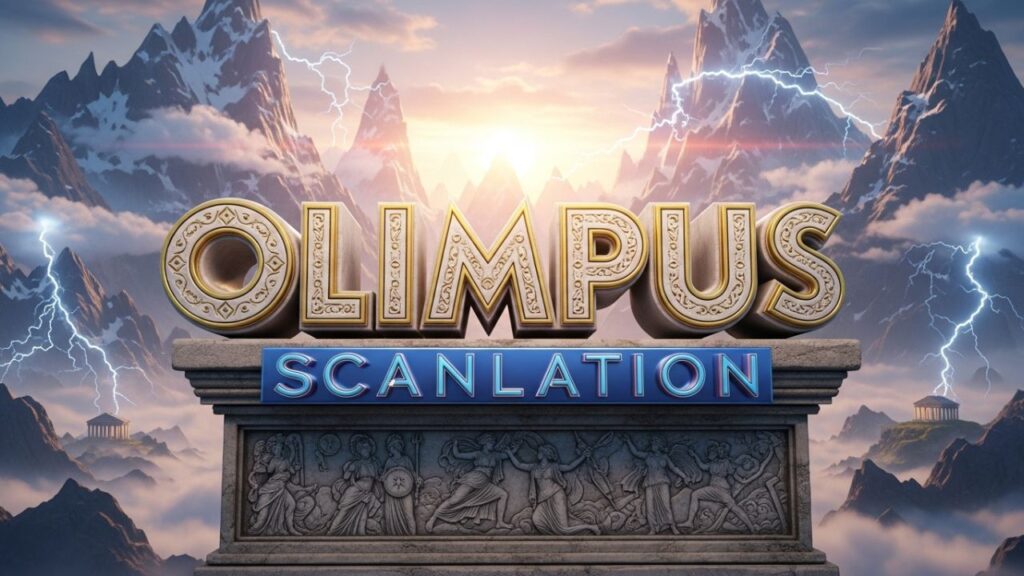Introduction
If you’ve ever searched for manga chapters not yet officially released in your language, you might have come across the term Olimpus Scanlation. This group exemplifies fan-based translation efforts that bridge language gaps in comics, webtoons, and manga. In this article we’ll examine what Olimpus Scanlation is, how it operates, its impact on the manga industry, and what readers should consider before engaging.
What is Olimpus Scanlation?
The term Olimpus Scanlation refers to a fan-run collective dedicated to scanning original manga or manhwa, translating the text into another language (often English), editing the visuals, and publishing the result online.
Unlike official publishers, this group is volunteer-based and often tackles titles that haven’t been licensed or localized commercially. For many non-Japanese speakers or readers outside the main markets, this provides access to works they might otherwise never see.
How Does Olimpus Scanlation Work?
The Workflow
The process followed by Olimpus Scanlation is similar to many scanlation groups:
-
Raw acquisition: Obtaining original pages (physical scan or digital).
-
Cleaning and editing: Removing original language text, tidying images.
-
Translation: Converting dialogue into the target language, often with attention to cultural nuances.
-
Typesetting and redraw: Placing translated text in speech bubbles, redrawing parts where embedded text existed.
-
Proofreading/quality check: Ensuring accuracy, readability and visual consistency.
-
Release and distribution: Publishing chapters online, often on a website or community platform.
Community & Collaboration
Olimpus Scanlation thrives on community involvement — translators, editors, clean-up artists and proofreaders collaborate remotely. Readers often contribute feedback, suggest future projects, or join discussions around releases
Why Do People Use or Join Olimpus Scanlation?
Access to Unlicensed or Late Releases
One big draw of choosing Olimpus Scanlation is access. Titles that aren’t yet officially available in certain languages or countries may be translated by fan groups first — giving readers a “first look” globally.
Passion and Community
Many scanlators view their work as fan labour: they are motivated by love of the medium and a desire to share it. For some readers, participating in the community around Olimpus Scanlation is as important as the reading itself.
Niche Content
Mainstream publishers may skip manga or manhwa with limited perceived demand in certain regions. Olimpus Scanlation often selects less commercial, niche or “hidden gem” titles — which appeals to readers seeking variety.
Legal and Ethical Considerations of Olimpus Scanlation
Legal Status
While fan translation groups like Olimpus operate with good intentions, the reality is that distributing copyrighted works without permission is typically a violation of intellectual property laws.
Ethical Implications
-
Support for creators: When readers consume only fan-translations and never pay for official versions when available, creators and publishers may lose revenue.
-
Quality control: Despite efforts for high standards, fan translations may lack the polish or oversight of official releases, potentially altering meaning or nuance
-
Industry impact: The availability of free scanlations might discourage official licensing in some cases, or delay legal releases, affecting the market.
Community Rules & Self-Regulation
Many legitimate fan groups, including Olimpus Scanlation, self-impose ethical guidelines:
-
They may drop a title once it becomes officially licensed.
-
They remain non-commercial, avoiding revenue generation to minimize legal risk.
These practices don’t guarantee legal safety, but they reflect attempts at ethical engagement.
The Impact of Olimpus Scanlation on the Manga/Manhwa Ecosystem
Positive Aspects
-
Broader reach: Scanlation groups help bridge language and geographic barriers, expanding readership for series that might otherwise remain obscure.
-
Fan engagement & fandom growth: The communities around Olimpus Scanlation foster discussion, art, translation interest, and deeper fandom participation.
-
Discoverability: By raising awareness of less-popular or niche titles, these groups can influence publishers to take interest in them
Negative Consequences
-
Revenue leakage: When fans substitute official purchases with fan-translations indefinitely, creators may lose financial support.
-
Delayed legitimacy: If publishers perceive a saturated or less profitable market due to free releases, licensing decisions may be impacted.
-
Legal risk: Both for groups and users. Hosting or distributing unauthorized works can invite takedown actions or legal consequences
Practical Advice for Readers Considering Olimpus Scanlation
If you’re thinking of exploring fan translation communities such as Olimpus Scanlation, here are pointers to keep in mind:
-
Check official licensing: If a title is officially available in your language, it’s better to purchase or access it legally—this supports creators and industry sustainability.
-
Use caution online: Fan translation sites may carry security risks like malware, intrusive ads or phishing attempts.
-
Respect the community: Many scanlation groups request that you don’t redistribute or mirror translations without permission.
-
Support creators anyway: Even if you use translated content, buying official volumes, subscribing to legitimate services or purchasing merchandise helps ensure creators are rewarded.
-
Be mindful of quality: Understand that fan-translations, while impressive, may differ from official versions in tone or nuance.
The Future of Olimpus Scanlation and Fan Translation Culture
As the global manga and manhwa market matures—with more digital platforms, simultaneous releases and global licensing—fan translation groups like Olimpus Scanlation face shifting relevance. On one hand, faster official releases reduce the “gap” that scanlations fill. On the other hand, fan communities still value access to lesser-known titles and remain passionate about translation as an art form.
Possible directions forward:
-
Collaborations between creators/publishers and fan communities for sanctioned translations or archival work.
-
Shift in focus from new titles to rare, out-of-print works that lack official versions.
-
Increased emphasis on education — translation practices, cultural appreciation, community building.
Conclusion
The world of Olimpus Scanlation is intriguing — it shows the power of fandom to overcome language barriers, bring together volunteer talent, and share stories across cultures. Yet it also exists in a grey zone: legal, ethical, and economic questions swirl around its existence. For readers, participating thoughtfully is key: enjoy what you love, but also respect the creators and industry that make it possible. Whether you use fan-translations as a bridge or simply as an introduction to titles, being aware of the broader implications is part of being a conscientious manga fan.
In short: Olimpus Scanlation offers access, community and opportunity—but with that comes responsibility. As the industry evolves, so too will the role of fan translation groups. The story of fan community meets creator rights is still being written, and readers have a part to play in how it unfolds.





